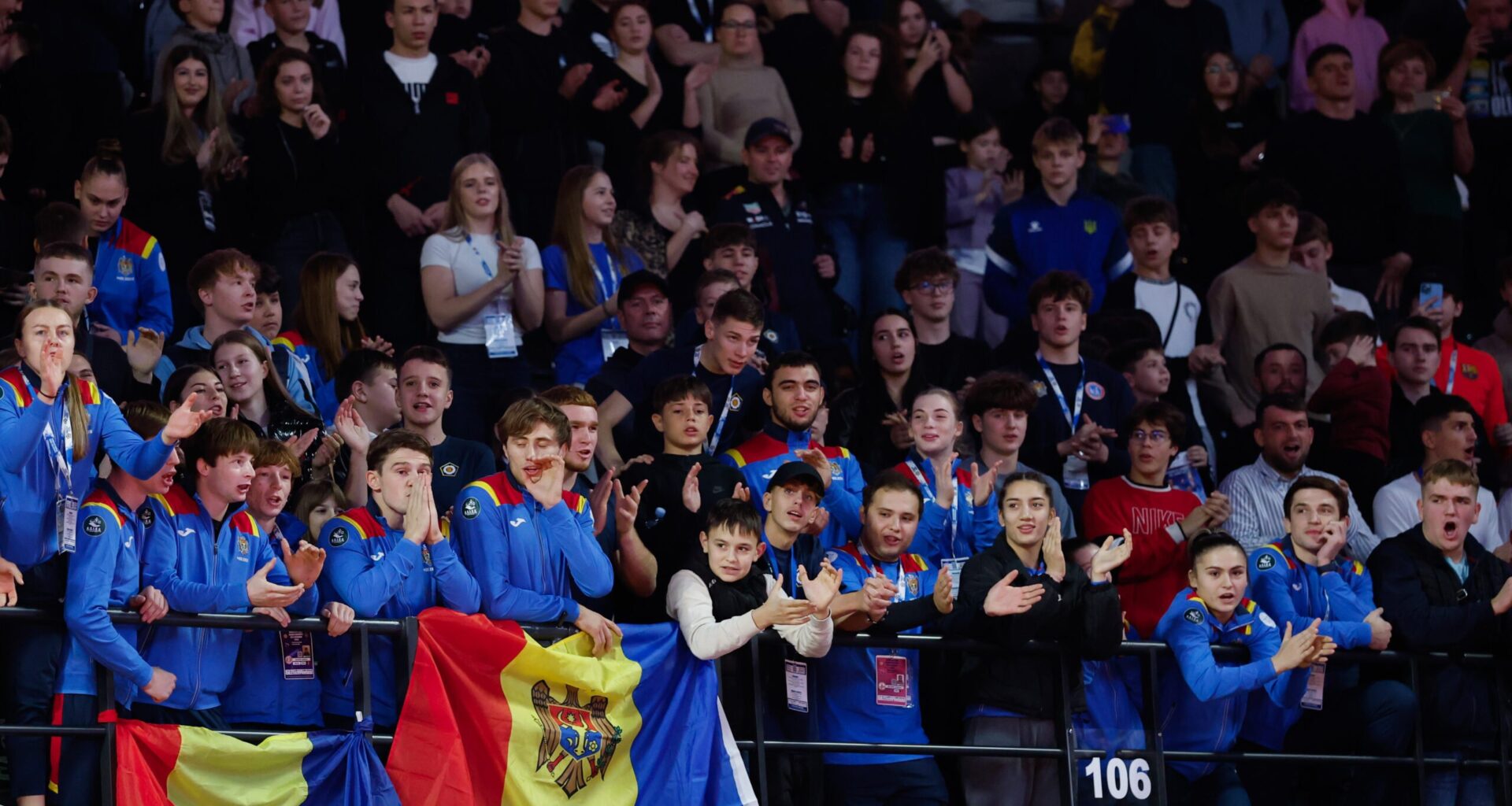When the lights dimmed on the U23 European Judo Championships in Chișinău, it wasn’t just the medals that gleamed, it was the pride of a small nation that dared to dream big. Behind every perfectly timed throw and every polished podium stood a team of visionaries led by the President of the Moldovan Judo Federation, Mr Andrei Golban, and the national head coach and chief organiser of the event, Mr Valeriu Duminica. What unfolded in Moldova’s capital was more than a competition; it was a testament to unity, resilience, and heart.
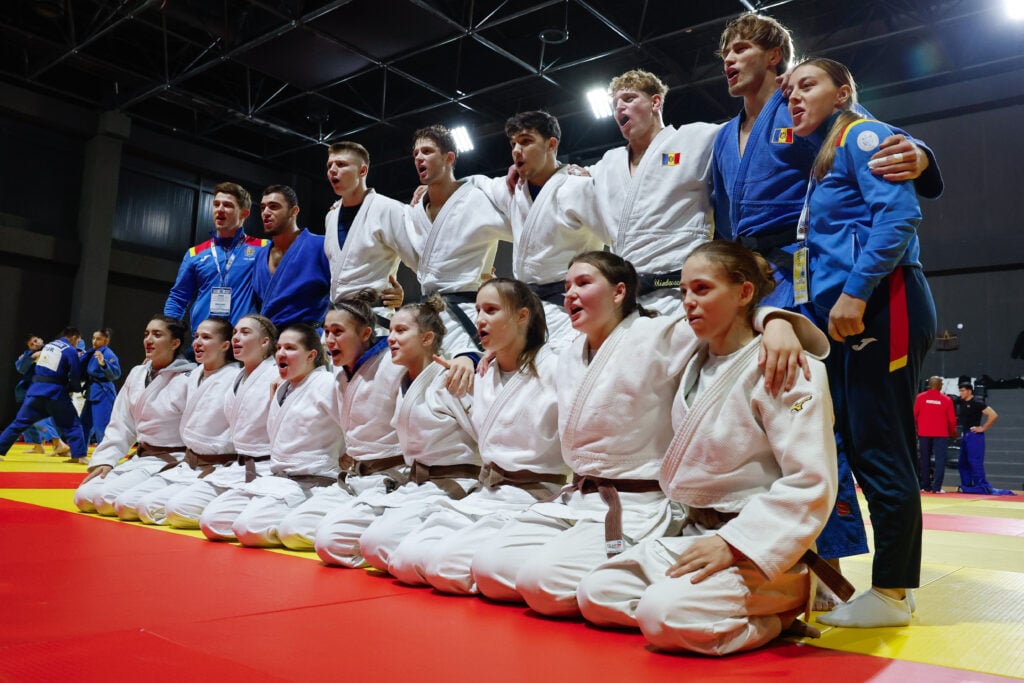 The Moldavian Team © Kostadin Andonov
The Moldavian Team © Kostadin Andonov
A Nation’s Effort
Sitting down after the last medal ceremony, Mr Golban’s gratitude was as clear as his exhaustion.
“First of all, I would like to thank everyone for their contribution to this European Championship here in Chișinău,” he began, emotion breaking through his composed tone. “We are a small country, yet rich in tradition, a country full of love, warmth, and kindness, both in spirit and in heart.”
Hosting an event of this magnitude was no small feat. “There have been many sleepless nights,” Golban admitted. “I am fortunate to have a great team behind me, all the Vice Presidents, the Secretary General, Valerii Domingoță Noagă, and Sergiu Oleni, who spent a week here in Moldova. They carried out an extraordinary project so that these emotions could be shared across Europe and throughout the world.”
The federation’s vision was not merely to stage a championship, but to showcase Moldova’s capability, its hospitality, its efficiency, and its heart. “We have done our utmost to make everything beautiful,” Golban said. “We look forward to welcoming you again to Moldova.”
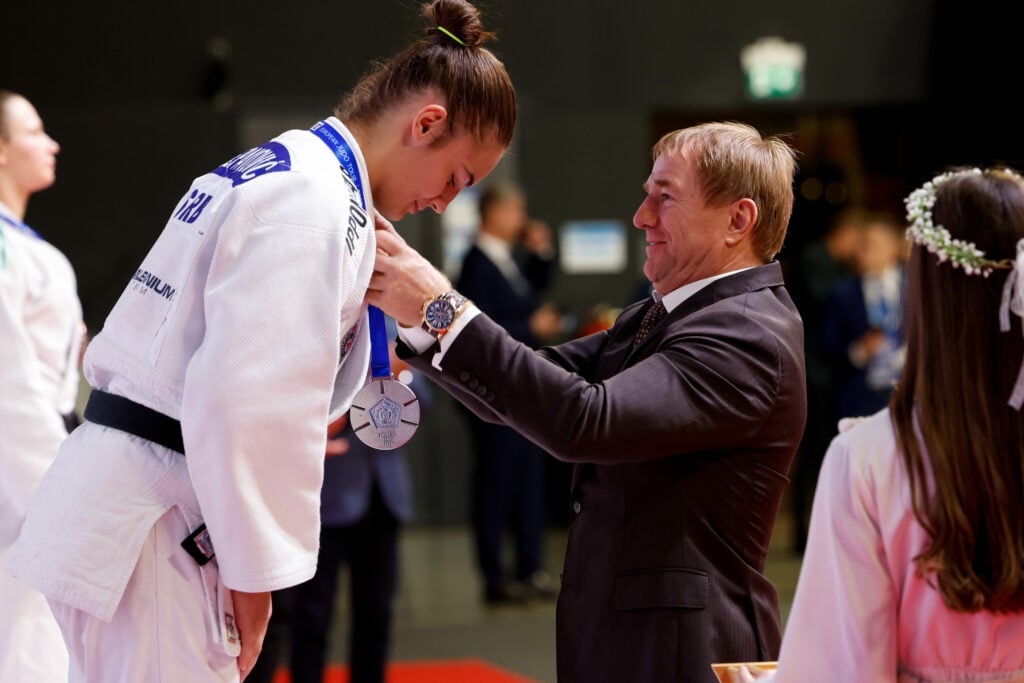 President Golban during the medal ceremony © Gabi Juan
President Golban during the medal ceremony © Gabi Juan
The Man at the Heart of It All
While Golban led from the top, much of the event’s pulse came from Valeriu Duminica, a man whose energy seemed to be everywhere at once, on the tatami, behind the scenes, and in the hearts of his athletes.
“It was very difficult,” he confessed with a tired smile. “It’s something new for us, for the first time. We did our best to provide all the necessary conditions, but if there were any small oversights, we apologise. Next time, we’ll do even better.”
For Duminica, this wasn’t just a logistical challenge; it was an emotional journey. “I was very involved, for the first time I felt this in team sports, and honestly, I was moved to tears. I don’t remember anything from the last two weeks. I didn’t sleep. I didn’t see my family. It was very hard.”
He paused before adding softly, “But it was really beautiful.”
When asked if this relentless effort reflected the Moldovan spirit, Duminica didn’t hesitate. “Yes, I think this is our spirit. It doesn’t matter if you are an Olympic bronze medallist or a simple judoka, everyone helps. My team is my family, and we work like it’s our home.”
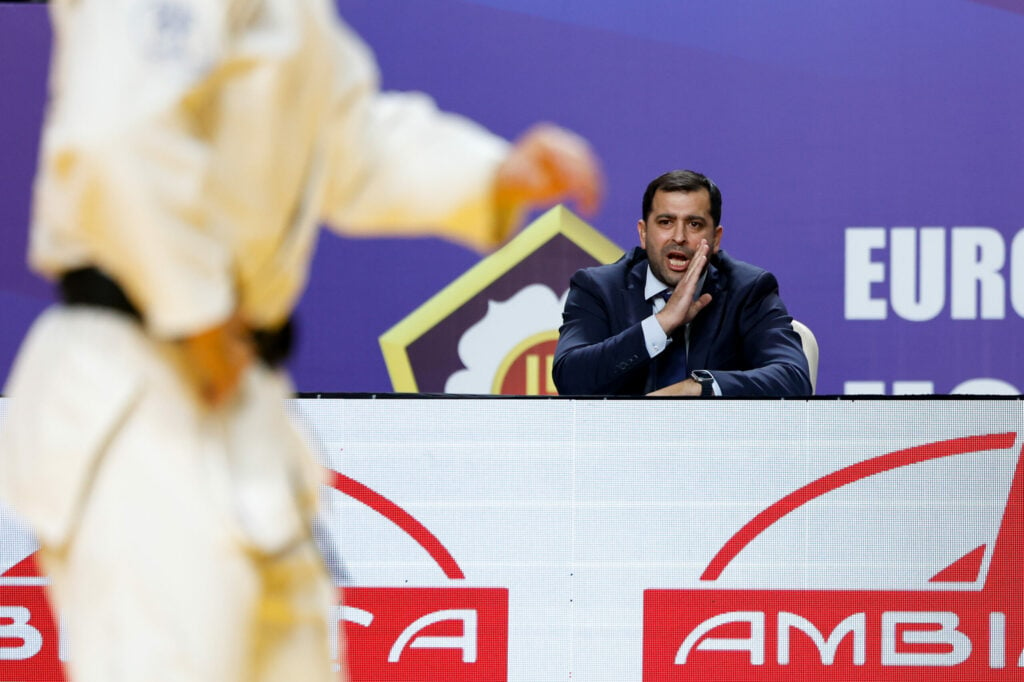 Mr. Duminica during coaching © Gabi Juan
Mr. Duminica during coaching © Gabi Juan
As both head coach and organiser, Duminica wore multiple hats, and wore them proudly. “I don’t know what my official role was,” he laughed. “I was the coach on the tatami but I also helped to organise everything. I wanted to start from the tatami and finish with the big picture, all that you saw here.”
Despite the fatigue, Duminica’s ambition burns bright. “I think it’s a good start,” he said thoughtfully. “Maybe the European Judo Union will give us the chance to host a senior or even aim for a cadet world championship one day. I trust that we have shown we can do it.”
Turning to the sport itself, Duminica’s pride in his athletes was unmistakable, even as he acknowledged the challenges. “For this competition, I wanted more,” he admitted. “But I dedicated so much time to the organisation that I couldn’t focus as much on coaching. Our team is very young, for some of them, it was their first time fighting at this level.”
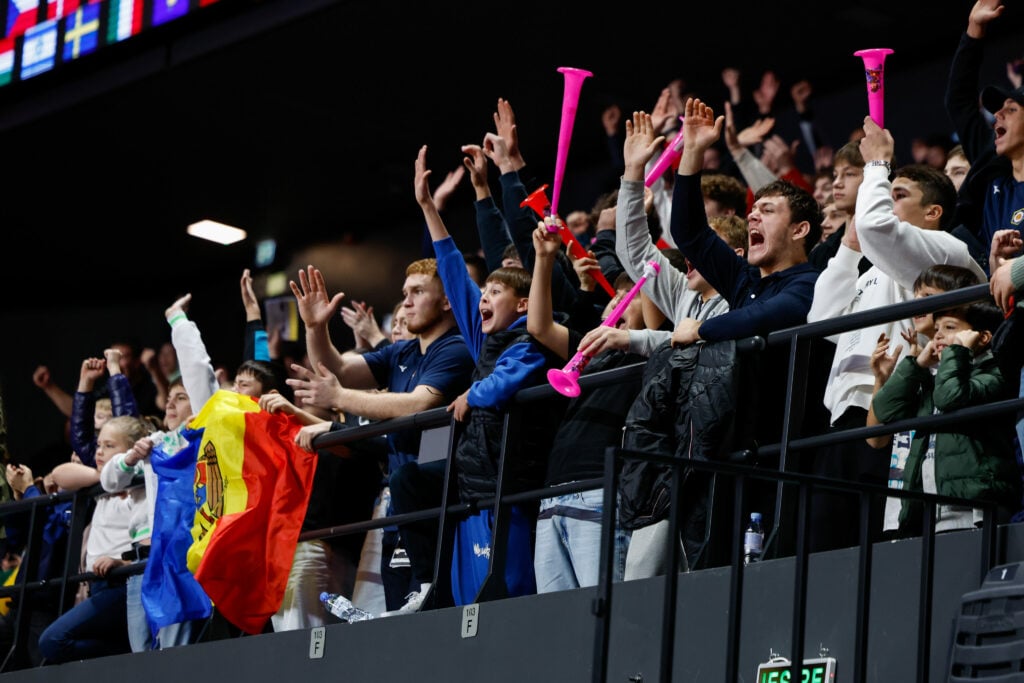
Still, he saw the future in them. “The mixed team event was very special. I told all my team that this is our future, maybe we will fight together at the Olympic Games one day. It was important that we reached the final block, that the hall was full, that our people could see this.”
And after all of it? “Now,” he said with a weary grin, “we need a big sleep, and then we are back to work. After the training camp comes the Grand Slam in Abu Dhabi. Back to business.”
For Moldova, hosting the U23 European Judo Championships was a declaration of capability, of unity, of love for judo. As the mats cleared, one message echoed in every corner of the Chișinău arena: Moldova may be small in size, but its heart, and its judo spirit, are boundless.
Author: Szandra Szogedi
